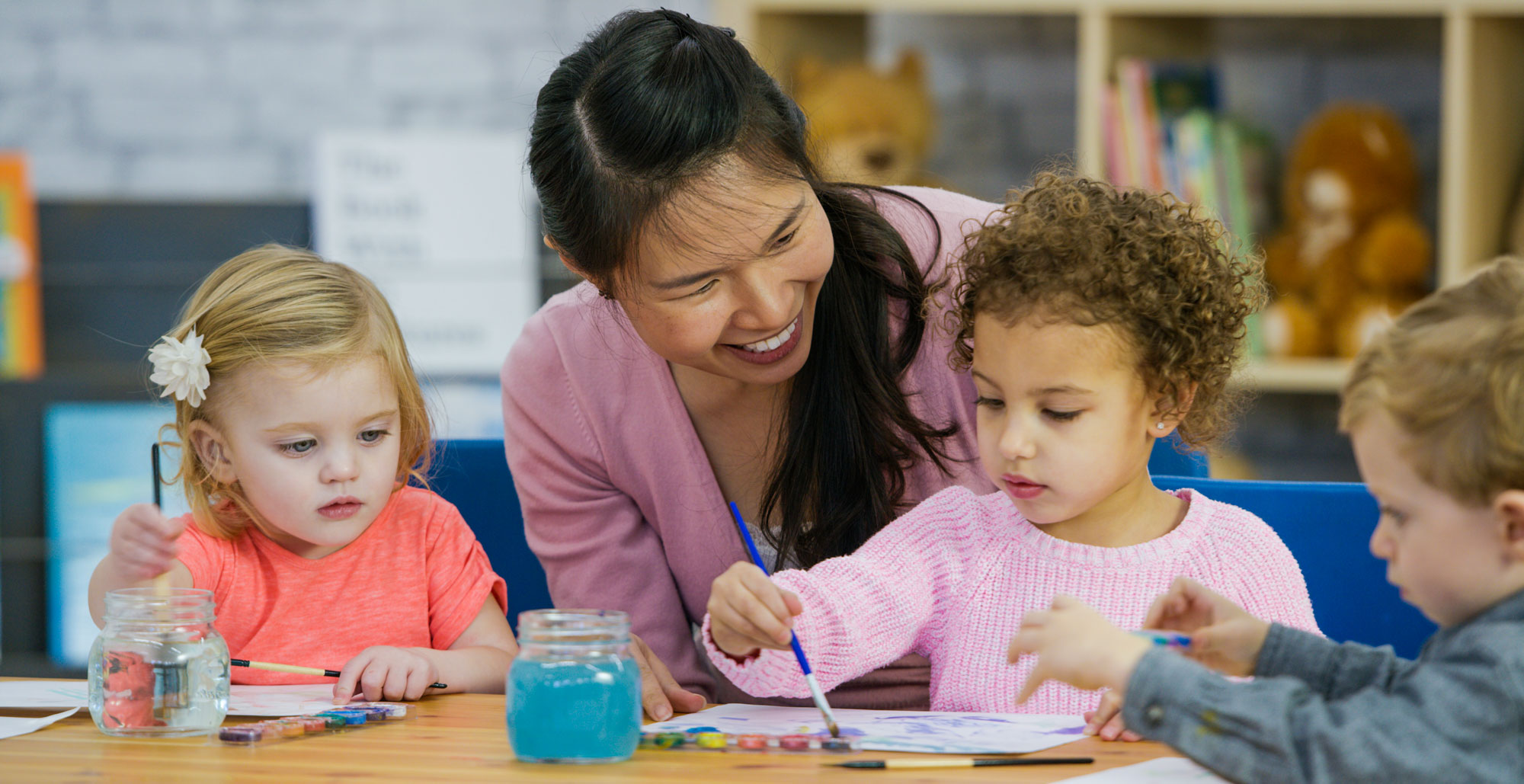
You have just wrapped up another workshop where you received great information on how to create meaningful learning experiences for young children. However, in the bustle of returning to your practice context, you find it challenging to put your new knowledge into action.
This is an ideal opportunity for coaching to bridge the gap between what you know about meaningful learning experiences and what you can do to make them a part of your daily practice.
Researchers and leaders at the Anita Zucker Center for Excellence in Early Childhood Studies have developed, implemented, and evaluated a unique type of coaching called practice-based coaching (PBC). Beginning with work conducted by Zucker Center director Patricia Snyder and her colleagues in 2007, PBC has become a local, state, national, and international coaching model. Similar to other forms of coaching, PBC is designed to support teachers and families to implement effective practices to support young children’s development and learning. What sets PBC apart from other coaching models is an emphasis on supporting practice implementation and its empirical foundation. Several research projects within the Zucker Center have shown PBC can have positive and lasting effects on teachers’ and families’ use of evidence-based practices and outcomes for young children. Evidence-based practices are behaviors that you can see or hear teachers and families use when they are interacting with or teaching young children.
HOW IT WORKS
PBC is a cyclical 3-step process. All steps occur within a collaborative partnership where both the coach and the teacher or family member are contributing knowledge, experiences, and ideas.
The first step involves gathering information about a teacher’s or family members strengths and needs related to the practices that are the focus of coaching. This information is used to develop a shared goal and action plan. During this step, early childhood teachers or family members share what practices they would like to work on with a coach. Coaches, like Zucker Center research scientist, Darbianne Shannon, then provide feedback and suggestions that help to make the goals and action plan steps feasible to accomplish within teachers’ and families’ everyday interactions and activities with young children.
“We know that families and teachers are busy. So, to help them to identify maybe one or two high-leverage practices that they can focus their attention on helps them to feel more successful.”
The second step of the PBC process involves engaging in focused observation as teachers or family members implement the practices they selected as their goal. For Zucker Center coach and research scientist, Crystal Bishop, this step is particularly important.
“The parent has identified a practice they want support to use. For example, if a parent wants to help their child learn to use single-words to communicate, then when I’m in the home, I observe the parent interacting with the child. Following my observation, the parent and I discuss how the parent can respond to the child’s requests or I can model ways that she could respond to her child’s communication.”
The third step of the process involves facilitating reflection and providing feedback to teachers or families about their implementation of practices that are aligned with their goal and action plan. Typically, these discussions focus on the teacher’s or family member’s confidence and competence about the practice(s) that are the focus of coaching with the coach providing both supportive and constructive feedback about practice implementation. Teachers and family members reflect not only on their practice implementation but also on the associated changes they are observing in young children’s development and learning. Once an action plan cycle of PBC is completed, a new action plan cycle focused on a different practice or goal begins.
PBC AND THE FUTURE OF EARLY CHILDHOOD CLASSROOMS
According to Shannon, who has coached teachers and supported others to learn to use PBC, coaching has become an indispensable part of the Center’s dissemination and outreach efforts.
“We’ve used practice-based coaching in a number of different classroom settings, including public schools, early care, and education centers, and Head Start programs, as well as in families’ homes. PBC is effective for supporting teachers and families to implement evidence-based practices in a myriad of different settings. No matter where a child is receiving care or services, what’s most important is that the interactions and practices that the adults in their lives are using are supportive of the child’s growth and development.”
Our research within the Center has demonstrated that when teachers receive support to implement evidence-based practices through PBC, young children make progress in their development and learning.
Ultimately, Center director Patricia Snyder notes, PBC is a process that is here to stay — given its crucial role in creating positive outcomes for not only teachers and families, but also for children. “PBC places an important emphasis on evidence-based interactional and teaching practices that teachers or family members can implement in everyday routines and activities to support young children’s development and learning. It has been amazing to see the adoption of PBC at local, regional, state, national, and international levels, which indicates that not only is an evidence-based approach, but an approach that people find feasible, acceptable and useful.”
Story by: Alexis T. Brown
